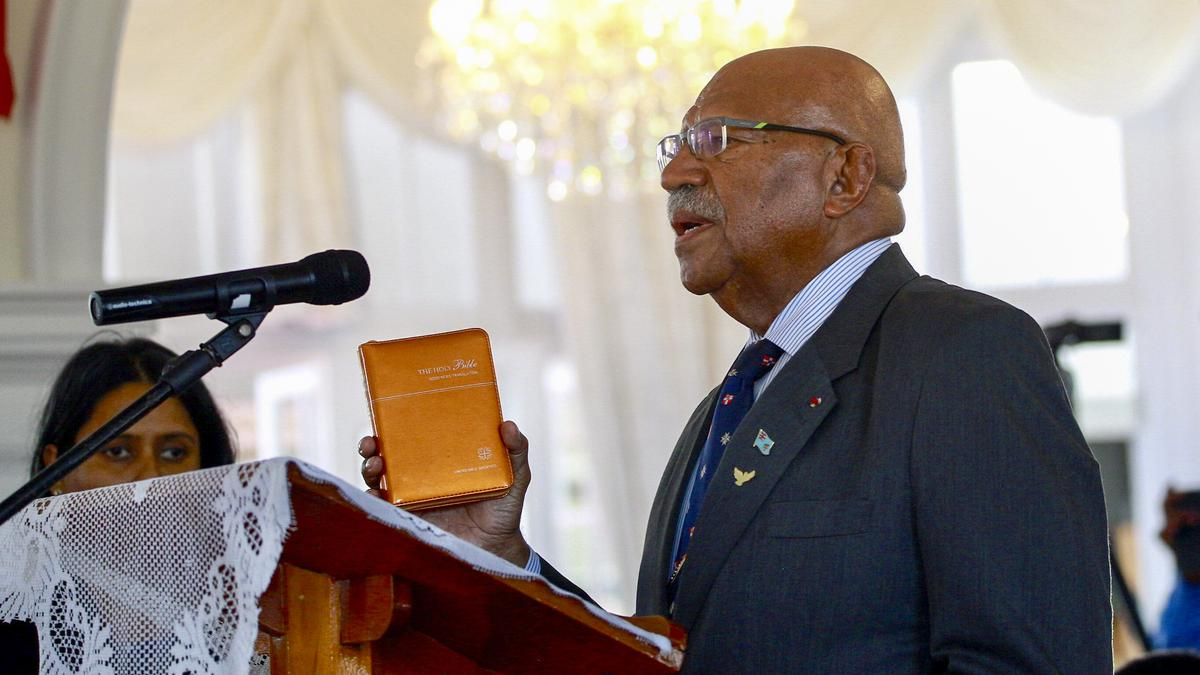Bainimarama should accept the results in Fiji, and respectfully leave the office
Fiji, the tiny archipelago nation in the South Pacific that has seen several coups since it got independence from the British in 1970, is facing a new round of power struggle and political instability. The latest crisis broke out after the December 14 general election produced a hung assembly with the ruling Fiji First party of Prime Minister Frank Bainimarama winning 26 seats in the 55-member Parliament, three short of majority. The People’s Alliance of former Prime Minister and current opposition leader Sitiveni Rabuka came second with 21 seats. Mr. Bainimarama, who came to power through a coup in 2006 and later refashioned himself as a democratic leader under a new Constitution that was introduced in 2013, has faced criticism of suppressing dissent and cracking down on the opposition. The election was marred by allegations of fraud. But after the results were announced, three opposition parties came together to unseat Mr. Bainimarama and form a coalition government. The People’s Alliance and its coalition partner, the National Federation Party (which won five seats), have 26 MPs’ support. This left the third opposition bloc, the Social Democratic Liberal Party which won three seats, in a kingmaker ’s role. The party decided on Tuesday in a close internal vote to support Mr. Rabuka, tilting the balance in favour of the People’s Alliance.
Mr. Rabuka, who first came to power through a coup in 1987 and then faced elections, is an experienced politician who built the opposition unity based on their common enmity towards Mr. Bainimarama’s rule. Mr. Bainimarama has emerged on the world stage as a major advocate of actions against climate change. His government also saw Fiji deepening its relationship with China, whose footprint in the South Pacific is rapidly expanding. The Fiji First still remains a strong party, but the opposition deal sealed its fate. The Prime Minister has not conceded yet. After the opposition announced the coalition agreement, the government called in the military. Authorities say there were incidents of ethnic violence (between indigenous Fijians and ethnic Indians). Fiji has a history of ethnic clashes, but the opposition say there is no law-and-order problem and that Mr. Bainimarama is trying to cling on to power. Any attempt to sabotage the election results will destabilise the country internally, disrupt its ethnic balance and complicate its foreign policy agenda. Mr. Bainimarama should accept the results, respectfully leave the office and set a strong precedent of peaceful transition of power for the country’s political class.
